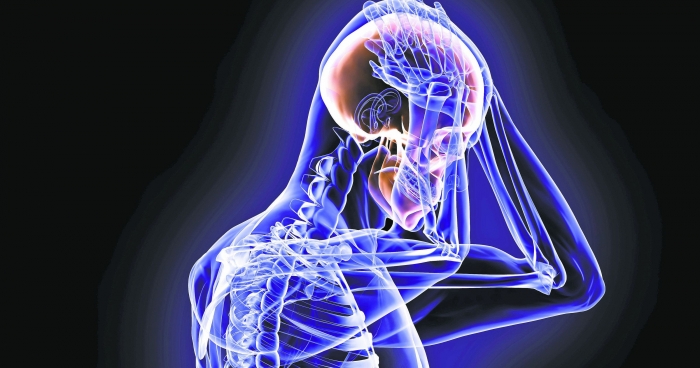On Jan. 30, Concussion MTL hosted “Looking Ahead: Improving Concussion Care,” a speaker series focused on concussion prevention, care, and rehabilitation.
The CDC defines concussions as traumatic brain injuries caused by a blow to the head, or by a hit to the body that causes the brain to twist or make contact with the skull. Deborah Friedman, assistant professor in the Department of Pediatric Surgery at McGill and director of trauma at the Montreal Children’s Hospital, explained the difficulties of caring for a patient with a concussion.
“Concussions by nature all have different trajectories,” Friedman said. “What works for one patient may not work for another. Different cases are all individualized.”
Not only are cases difficult to treat because of their individualistic nature, but the healing process for a concussed individual is not linear, nor is it universal. Nevertheless, there is a set of guidelines that patients with a concussion should follow.
“The first 48 hours are a critical healing period,” Friedman said. “During those 2 days, a person should sleep [and] stay away from screens and stimulus. However, after that it’s best to slowly integrate [non]-intensive cardio and attempt to return to work and school without pushing yourself.”
Unfortunately, there is no test that can rate the severity of a concussion with 100 per cent accuracy, or ensure a quick recovery. CT scans and MRIs won’t show anything unless the patient is experiencing a brain bleed.
Dr. Gordon Bloom, professor of sport psychology at McGill, explained why this uncertainty presents such a barrier in the recovery process and contributes to the stigma related to concussions.
“With most injuries, doctors and patients alike understand how to get to from point A [the injury] to the finish line, [but] that’s not the case with concussions,” Bloom said. “Doctors can’t give you an exact timeline. Due to this, we are seeing athletes and students alike return to sport, work, or school too early because of a fear of what they are going to miss.”
While this may address the cognitive and physical aspects of concussions, there is another important, often neglected, factor. Hilary Duncan, a clinical psychologist with Blake Psychology, addressed the emotional aspect of the injury: A side of concussion care that receives little attention.
“We see two major things when patients are recovering: Guilt and doubt,” Duncan said. “They always question whether they are babying themselves. The increasing awareness of concussions is very good but we are trailing behind in the mental health-related stuff.”
Recovering from a concussion can be difficult, and a long road if the patient doesn’t follow through on the initial steps to recovery. Friedman has patients who tell her that they wish they could have suffered from a broken bone, or a more obvious injury that other people would believe and accomodate for. This is a recurring theme in concussion recovery. As an otherwise-invisible injury, it is difficult for a concussed individual to get support for their physical and emotional pain, in turn making it less likely for them to seek accommodations.
The field of concussion research is booming, but preventative strategies are falling short. As frequent diagnoses of Chronic Traumatic Encephalopathy (CTE)—a degenerative brain disease resulting from repetitive trauma—continue to permeate the mainstream media, doctors and teachers are brought up to speed on how to best treat concussions. Experts working in concussion care and prevention should focus on teaching coaches, parents, and students how best to mitigate them.
Throughout the panel, the speakers unanimously suggested that spreading awareness and implementing measures to avoid head trauma such as practicing non-contact sports and wearing helmets is a good start, but it’s not enough. Society needs to be proactive, not reactive.
“The concussion epidemic now [is as dangerous as] the smoking epidemic,” Bloom said. “The research isn’t out yet so people don’t want to believe it, [but] people are going to look back and realized they missed out.”









